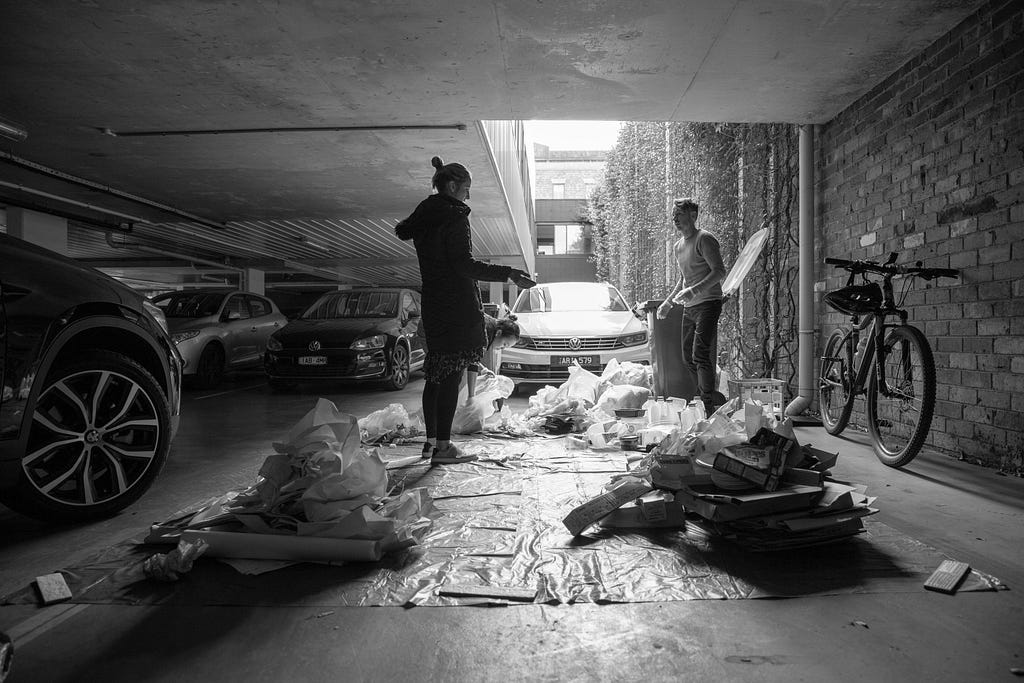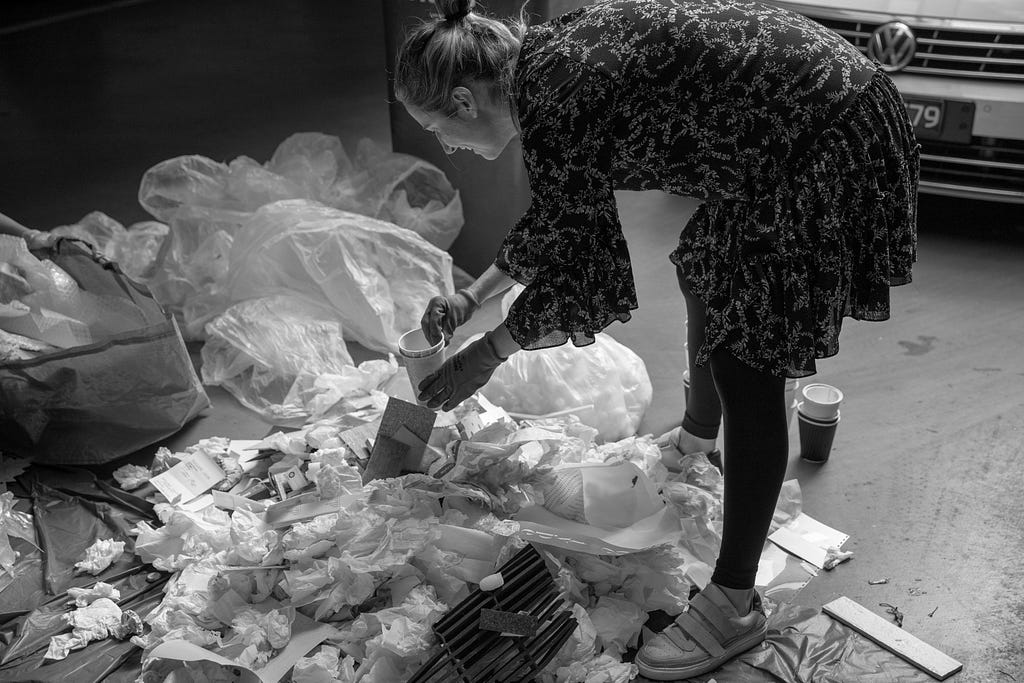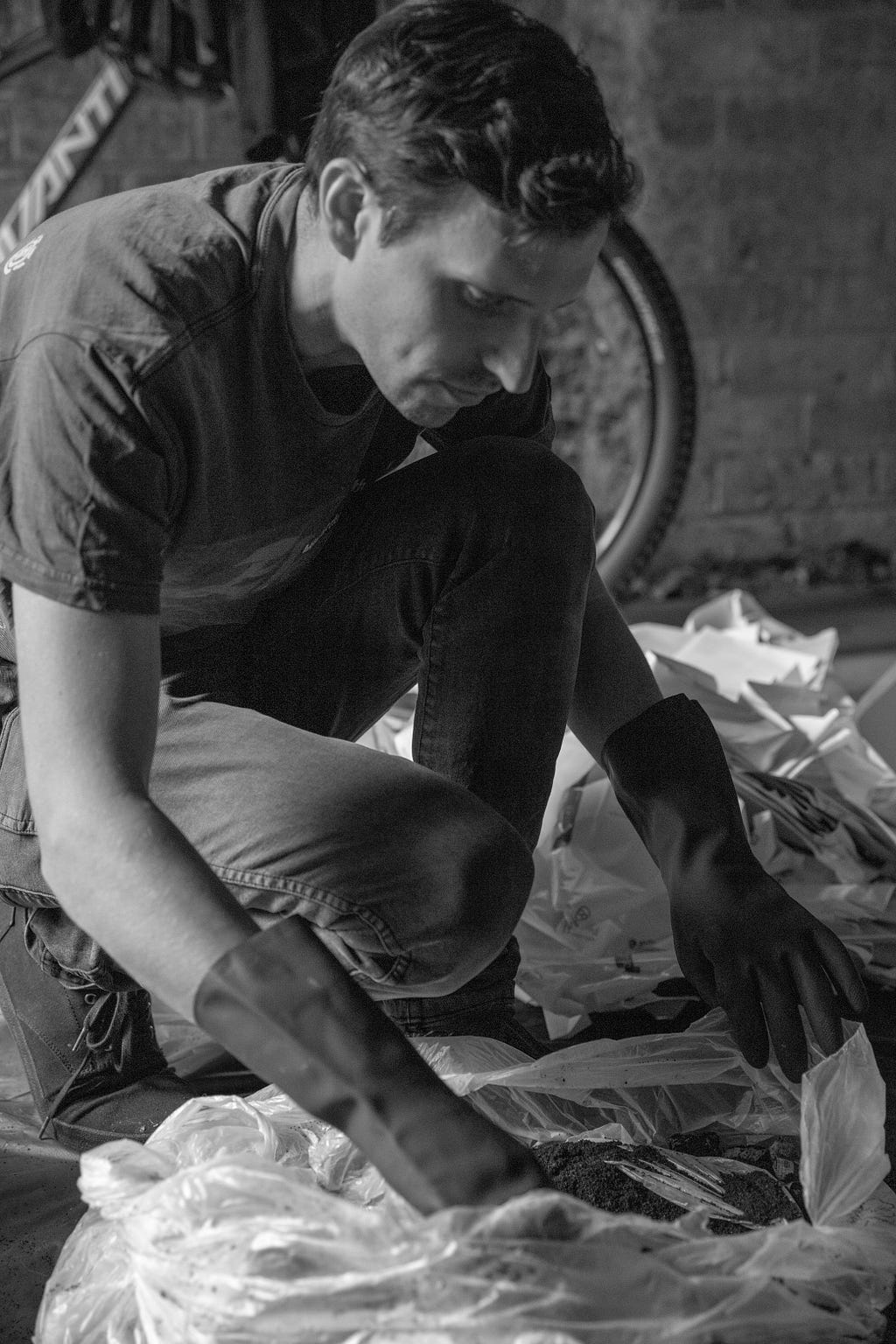Australian B Corp Digs Through Its Waste and Recycling to Reshape Office Routines

As a committed Certified B Corporation and Melbourne, Australia-based architecture practice, we’ve been reducing, reusing and recycling our office waste for years. We figured we were pretty good at it. But for B Corp Month 2019, we decided to find out.
We embarked on a “War on Waste,” inspired by the ABC TV show of the same name, and in the process uncovered five simple steps — most free, others very low cost — to drastically improve our recycling efforts and reduce our annual contribution to landfill by nearly one-third. Given how many businesses face similar challenges and are keen to reduce their waste, we wanted to share our discoveries.
ClarkeHopkinsClarke is part of the community of businesses that have used a third-party verification of their impact. Use the free B Impact Assessment to evaluate your company’s impact on all stakeholders, including the environment, your workers, your community and your customers.
Here’s a quick video that tells the story: Our process, key problems and a few high-impact initiatives we introduced as a result.
At ClarkeHopkinsClarke, the War on Waste began when one of our architectural technicians, Ian Knight, noticed desk bins meant only for paper being used for other things too. His request for clearer signage kicked off some broader conversations about waste management and led to some hands-on, smelly research.
Over three days last month, a small team of ClarkeHopkinsClarke staff volunteered to audit our paper, recycling and waste bins to assess contamination and find out which items we were disposing of incorrectly. This helped us determine the five steps to improve our recycling and reduce our contribution to landfill. Acknowledging the reality of “wishful recycling” and the lure of convenience, we focused on clear education and high-impact steps that required minimal behavioural change from staff.

Waste Audit Findings
Our search through the waste and recycling containers revealed:
- 47% of our waste was organic matter that could be composted.
- 49% of our recycling was being put in incorrect bins.
- 57% of paper was being put into mixed recycling, not our dedicated paper bins. That meant 2,986 kg of recyclable paper was ending up in the landfill per year.
- We were sending 6,960 disposable coffee cups to landfill per year (despite supplying staff with reusable Keep Cups).
- 220 kg of soft plastics that could be recycled were being sent to landfill per year.
- We were producing 8,906 kg of total waste per year (around 60 kg per employee).
- We were recycling 1,256 kg of waste per year.
- 18% of our waste (excluding coffee grounds) related to coffee consumption.

5 Steps to Change
After assessing these discoveries, we came up with a few steps to reduce contamination in our recycling bins and cut our landfill contributions:
1. Reducing disposable cup use, adding lids to mixed recycling and sending cups to landfill.
2. Sending soiled items like tissues and handtowels to landfill.
3. Adding yellowtrace (the architect’s favourite tool of trade) to paper recycling bins.
4. Introducing soft plastic recycling bins.
5. Introducing an organic waste composting machine (which produces dried flakes staff can use on their gardens).
That led to a handful of other initiatives to make it easier for all our staff to do the right thing as often as possible:
- Introducing colour-coded recycling bins throughout the office.
- Replacing generic bin icons with detailed signage showing items suitable for each.
- Providing mini desk bins for staff who prefer to sort waste once a day at our shared (conveniently located) bin stations.
- Providing shared Keep Cups at each office entrance for staff heading out for take away coffees without their own.
- Encouraging staff to use the back of recycled paper for things like rough sketches and notes.
Making and Tracking Progress
During B Corp Month, we launched a War On Waste education campaign at our regular weekly staff meeting. We shared the video, raised awareness about what goes into each bin, explained the rationale behind the new initiatives so everyone understood what was changing and why, and fielded questions and suggestions with help from our very helpful cleaners. And we added this education to our onboarding process for new staff.
A month in, staff have taken to the War on Waste like ducks to water. We’re all noticing changes to our daily habits. But the proof is in the pudding, right? We’ve committed to a follow-up audit in 12 months’ time so we can measure the impact and keep up the fine-tuning.
B the Change gathers and shares the voices from within the movement of people using business as a force for good and the community of Certified B Corporations. The opinions expressed do not necessarily reflect those of the nonprofit B Lab.

Declaring War on Waste: 5 Steps to Enhance Your Recycling Efforts was originally published in B the Change on Medium, where people are continuing the conversation by highlighting and responding to this story.